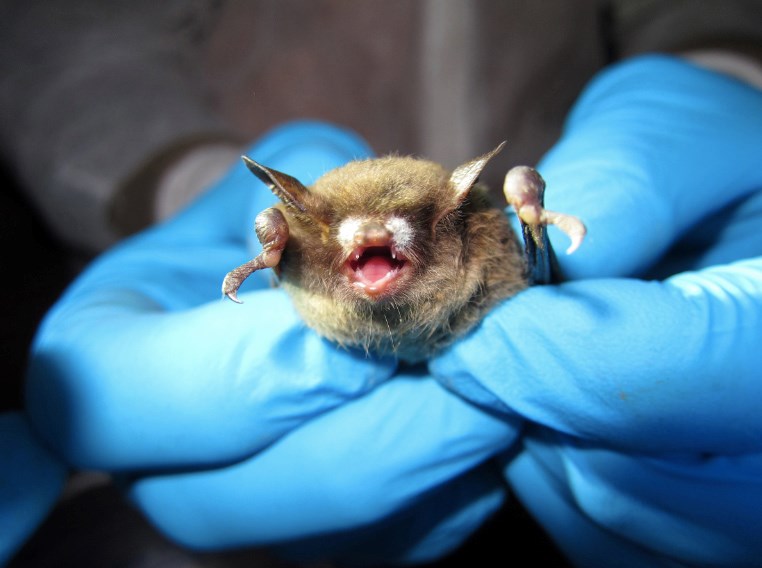A fungus that is devastating bat colonies may be headed to the Tri-Cities and local researchers want people to keep their eye out for the fanged flying mammals near homes or in parks.
At this time of year, bats are in their hibernation phase but if they have white-nose syndrome, they may wake up frequently to rub their fur, resulting in a loss of energy that could kill them before winter is over.
That’s why it’s important to watch out for unusual bat activity in winter or dead bats outdoors, especially in the area of Colony Farm Regional Park in Coquitlam and other places bats roost, says Aimee Mitchell, Fraser Valley coordinator of the BC Community Bat Program.
Even if you spot a sleeping bat on your property or spy an active bat flying on a relatively warm winter evening, let the bat program know, as researchers are trying to keep track of local bat populations. People are encouraged to email or call in if they see something unusual. Bat carcasses will also be studied, if found.
White-nose syndrome has devastated bat populations in North America and has slowly made its way across the continent, with incidents of the disease found in Washington State in 2016.
It was estimated that the disease would reach B.C. within five years of being found in Washington, prompting the establishment of a community monitoring program.
“The south coast is a priority because it’s closest to those observations,” Mitchell told The Tri-City News last week.
Although the disease hasn’t been found in B.C. bats yet, efforts have already been implemented to combat white-nose syndrome at Colony Farm, where bats are known to roost, with the placing of a probiotic in bat boxes.
“It’s a probiotic that basically promotes healthy bacteria and limits the growth of the fungus,” Mitchell explained.
Besides little brown bats, other bat species affected include the Yuma Myotis and the Fringed Myotis, as well as silver-haired bats.
While bats are generally hibernating out of sight this time of year, not every winter bat sighting signals disaster. As bats often hibernate by themselves in a woodpile or basement entryway, it’s best to leave these sleeping bats alone.
Keep your distance, snap a photo, and report to the BC Community Bat Program. If you must move a bat, visit www.bcbats.ca for advice — and never touch a bat with your bare hands.
• If you find a dead bat, report it to the BC Community Bat Program (www.bcbats.ca, [email protected], or 1-855-922-2287, Ext. 24) as soon as possible. If you or your pet has been in direct contact with the bat you will need further information regarding the risk of rabies to you and your pet.
• For sightings, and other observations, contact Aimee Mitchell, the Fraser Valley coordinator of the BC Community Bat Program at 778-833-2417 or [email protected].



